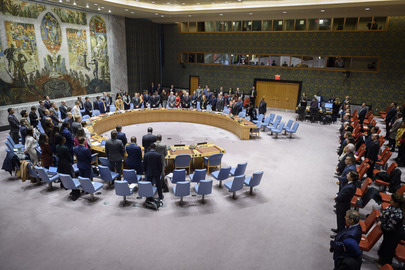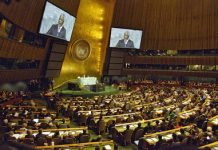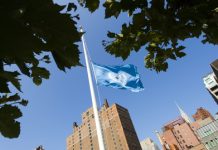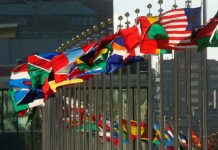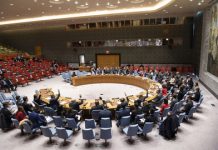Since then, “there has been no end to the violence, even though thousands have been killed and thousands more injured,” said UN Special Envoy to Myanmar, Julie Bishop, on Tuesday, briefing the General Assembly.
“I have stressed consistently that without a ceasefire, a de-escalation of violence and a focus on the needs of the people, there can be no inclusive lasting peace,” she said.
Call for ceasefire
Having spoken with survivors among the rubble of homes, hospitals and schools, Ms. Bishop said they “wanted the fighting to end so they could live in peace,” as armed clashes continue to obstruct the aid and reconstruction effort.
Although some parties to the conflict have announced ceasefires, “they have largely not been observed,” she said.
Reiterating her call for an end to hostilities she said civilian protection “must be the priority and inclusive and sustainable peace a shared goal.”
Without and end to the violence she said Myanmar would continue on “the path to self-destruction.”
Contested elections
Ms. Bishop warned that unless there is an end to the violence and an inclusive and transparent electoral process, all that could result from any election – which the junta is planning to contest – would be “greater resistance and instability.”
“It is inconceivable how an election could be inclusive,” she said, with so many political leaders still being held by the regime.
Ms Bishop also reiterated the UN’s call for the release of all arbitrary prisoners, including democratically elected leaders Win Myint and Aung San Suu Kyi.
Rohingya’s plight
With up to 80 per cent living in poverty, the situation of the mostly Muslim Rohingya minority in both Myanmar and Bangladesh remains dire.
Caught in the crossfire between the Myanmar military and the Arakan Army, Rohingya civilians in their historic homeland of Rakhine State are being subjected to forced recruitment and other abuse.
As aid dwindles, Rohingyas living in Bangladesh’s Cox’s Bazar face real consequences, including cuts to food rations and education.
“A viable future for Myanmar must ensure safety, accountability, and opportunity for all its communities, including Rohingya, and must address the root causes of conflict, discrimination and disenfranchisement in all its forms,” said Ms. Bishop.
Source of original article: United Nations (news.un.org). Photo credit: UN. The content of this article does not necessarily reflect the views or opinion of Global Diaspora News (www.globaldiasporanews.com).
To submit your press release: (https://www.globaldiasporanews.com/pr).
To advertise on Global Diaspora News: (www.globaldiasporanews.com/ads).
Sign up to Global Diaspora News newsletter (https://www.globaldiasporanews.com/newsletter/) to start receiving updates and opportunities directly in your email inbox for free.


